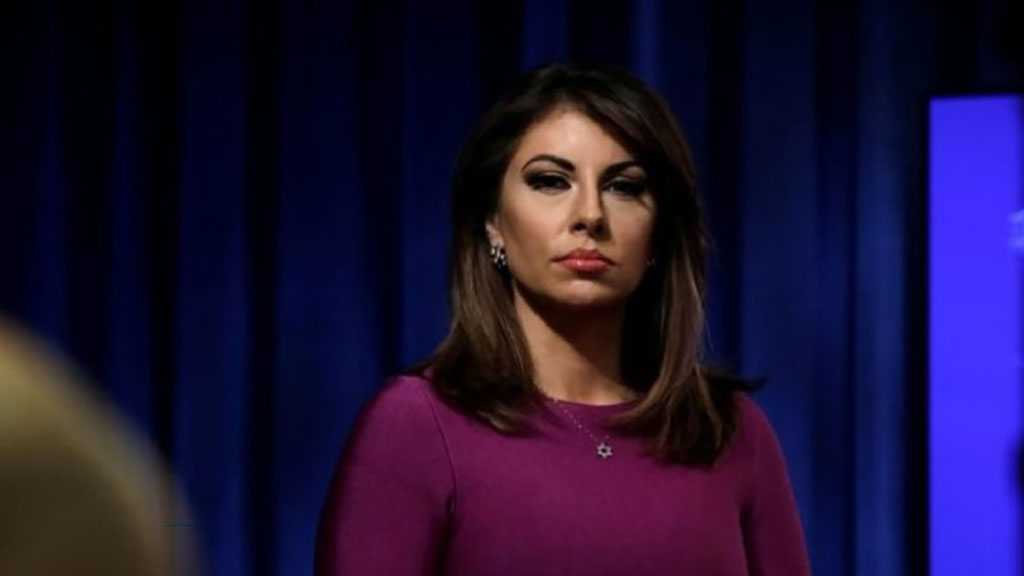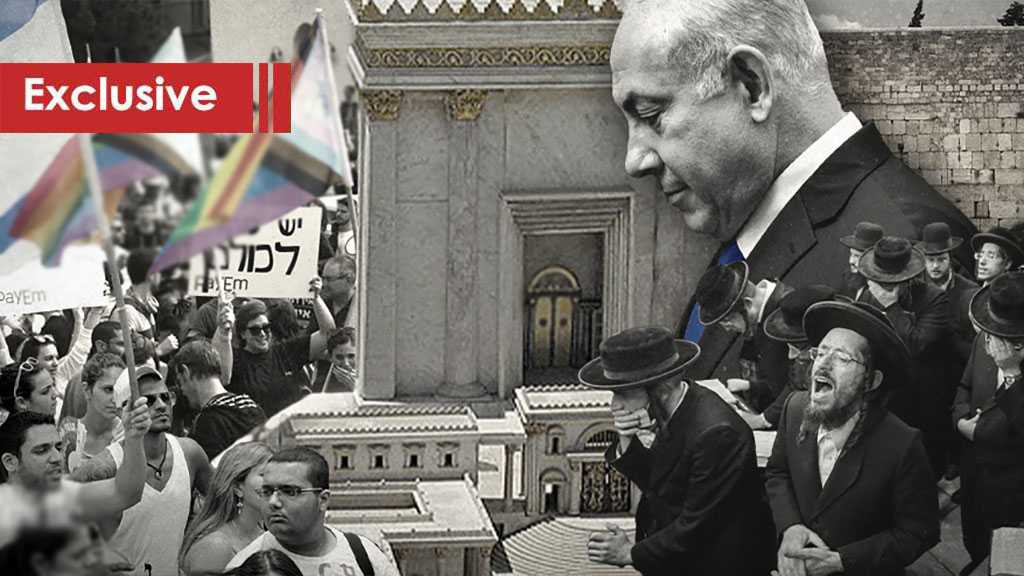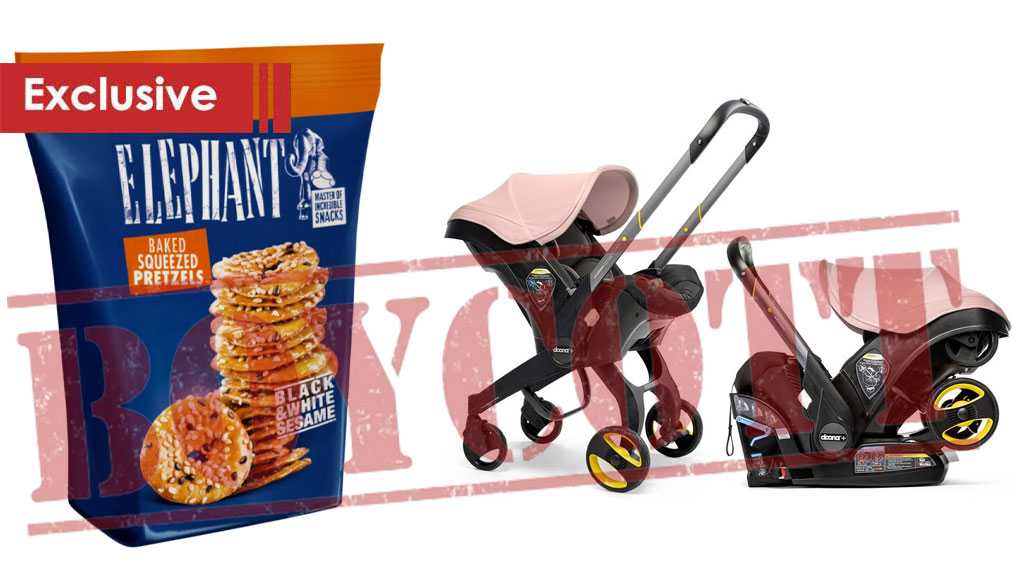
Rafsanjani to Al-Ahed: KSA’s Naive Rulers Miscalculated Aggression on Yemen, ’Israel’ to Be Expelled
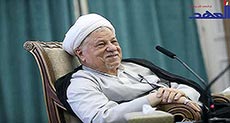
Mokhtar Haddad - Tehran
His eminence Ayatollah Sheikh Akbar Hashemi Rafsanjani, the Chairman of the Expediency Discernment Council, is considered in the Islamic Republic as one of the most important men and pillars of the Islamic Revolution from its inception up until the present day. He has played a pivotal role in many of the stages of the revolution, whether during the days of struggle, or when he was President of the Republic, Chairman of Parliament, or deputy of his eminence Imam Khomeini [may his soul be blessed] in the Sacred Defense leadership.
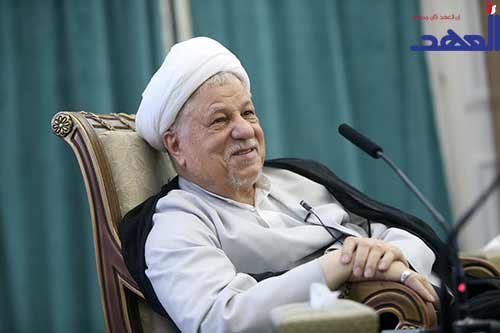
He was one of the people close to the late Imam [Khoemeini], and one of the closet friends of his eminence Imam Sayyed Ali Khamenei since their [religious] seminary study days up until today.
During an exclusive interview with ‘Al-Ahed News' website surrounding the leading developments in the region and the world, Sheikh Rafsanjani described the Saudi aggression on Yemen as a strategic miscalculation, emanating from the naivety of the Kingdom's new rulers. On the other hand, he expressed his belief that the Iranian nuclear deal will impact positively on the regional level.
Sheikh Rafsanjani also stressed that the existence of "Israel" and its fake government is temporary, and that the day will come when this foreign tumor will be expelled from the body of the Palestinian people and country.
The following is the text of the interview:
Q) How does the Islamic Republic view the production of nuclear weapons in light of the fatwa of his eminence Imam Khamenei prohibiting the production [of such weapons], and especially as we know that the Zionist occupation today has the largest nuclear arsenal [in the region]?
A) We are committed to the fatwa of the leader, his eminence the leader issued the fatwa, and it was circulated widely to the public.
Q) In the event of an agreement being reached on the nuclear issue, is Iran betting on changes occurring on the economic and social levels?
A) The effect will be positive for both sides, the situation in Iran will return to its normal state, a country rich in natural resources and wealth will benefit them, and we would have the upper hand in international economic cooperation, and in the promotion of trade relations with others, in addition to [gaining access to] technology at all levels.
Not only that, for the level of domestic production will double, as about 40-50% of our investments in production are currently frozen, but after the agreement these investments will jump several fold.
In addition, the psychological impact will be clear and very great, there are a lot of foreign states as well as Iranian citizens living abroad, who wish to invest in Iran.
At the same time, Iran has great potential for investment, the petrochemicals sector alone can create a great civilization on the shores of the Persian Gulf. Furthermore, there are great potentials in the form of Iranian graduates and intellectuals who will be provided with job opportunities, and abroad aswell, when relations become normal with foreign states, life will be easier, and Iranians will feel more security and stability both at home and abroad.
In general, it is my belief that the agreement will be useful and very productive. On the regional level as well, the level of hostility towards Iran will reduce; during the war of the Baath regime [on Iran], we forgave those who provided full support for Saddam Hussein and said: what has happened has happened, we will work to normalise relations.
When Saddam occupied Kuwait, a lot of Kuwaitis came to Iran in their cars seeking refuge, and they lived their daily lives freely, going to their country and returning to Iran without any restrictions or obstacles, so the knot currently present in these relations do not have any logic and should be removed.
Q) What is behind the renewed Zionist pressure on the US administration to back away from the nuclear deal? And what is the goal of the entity in trying to derail the agreement from occurring?
A) The Zionist entity knows very well that we are not seeking nuclear weapons, especially after the fatwa of his eminence the leader. But this entity does not want our problems to be resolved, because it knows that if Iran is able to solve its problems, the political, economic, cultural, and media position of Iran, and its position in all other sectors, will jump to higher levels.
And it is unfortunate that we see a lot of Arab states moving towards "Israel". If Iran were present in the arena then it would not have allowed these states to move towards "Israel", states that view that their interests require such a move.
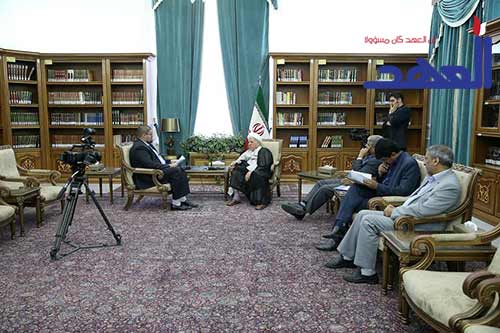
Q) What is your comment on the Saudi aggression on Yemen, and what is the impact of this war on the future of the Saudi regime?
A) This war is one of the miscalculations of Saudi strategy, what do you think they will reap from it? Even if we assume that the war goes on for a year, and the Kingdom continues its bombing of the Yemeni people, what will be the result of that? More victims and losses, or will be Riyadh be able to subject millions of Yemenis who remain patient and steadfast till now? No, rather, feelings of hatred, revenge, and hatred will increase, there are millions of Yemeni citizens living in Saudi Arabia and vice versa. Therefore, Saudi Arabia implicated itself in a dilemma, whereby it believed that it was able to send large numbers of ground forces into Yemen. The ground war carries significant risks, and states are not prepared to send their sons into such wars.
Saudi Arabia is a country that hosts pilgrims, and therefore the image of this country must be one of mercy and compassion, but that did not happen, as Saudi Arabia is killing so many Muslims in a poor and vulnerable country. So do you expect its image to remain pure after that?
I also think that these events took place because of the naivety of the new rulers of Saudi Arabia, if King Abdullah was still around, these events would not have taken place.
Yemen has existed throughout history, and also the differences have been around for years, in addition, Saudi Arabia was previously unable to do anything, it will not be able to achieve today what it has failed to achieve in the past. They need to await the outcome of the [internal] Yemeni developments and accept the status quo, and establish good relations with Yemen.
Q) What is the seriousness of the international coalition that was formed to fight "Daesh" terrorists?
A) The coalition does not do much, the problem is that war cannot be waged from the air alone. We also are not sure about the sincerity of the coalition in its war against "Daesh", whereby in Syria for instance, they are bombing [targets] while also looking for a solution within it. In Iraq, they have their own goals - which must be studied carefully - aimed at securing their interests and the interests of the region at the same time.
Q) What is your assessment of the impact of the Iraqi Popular Mobilisation Forces on the Iraqi scene, especially since the Religious Reference [Marjaiyyah] in Iraq issued a fatwa [in this regard] for the first time in a century?
A) We have experienced such a phenomenon during the Islamic Revolution in Iran, as when the Revolution triumphed in Iran, the army, police, and SAVAK were not with the revolution, of course, we do not overlook the fact that deep-rooted cells within the army and the police were with the people to some extent, and when Imam Khomeini proposed the idea of establishing a popular volunteer force [‘The volunteers of the Oppressed' - the Baseej] comprised of 20 million, this force was able to solve a lot of issues, including the imposed war, and was a very successful experience. We were able - like others - to have a large number of military reservists and Revolutionary Guards.
During normal circumstances the Zionist entity today has a small army. But "Israeli" reservists make up almost most of the population. When a call is made to them, all of them respond. Within the space of one year, reservist forces undergo [at least] one training course to enhance their know-how. Therefore we see that the "Israeli" army has always been in a state of preparedness.
Iran has underwent this experience in the past, but Iraq does not have any experience in this area, and the call of Ayatollah Sistani has opened the way for the founding of the Popular Mobilisation Forces in Iraq, however, these forces must be highly disciplined too, and there are many commitments that need to be made.
Q) How do you see the end of the conflict between the forces of evil represented by the alliance between the West and "Daesh", and between the resistance forces in the region? Where will this confrontation lead?
A) I am concerned that the sources of wealth in Syria are drying up, and concerned for the Syrian government, which is trying to keep daily life going. They also do not have serious financial and military support, in addition to other things. Many of its cities have fell under occupation, and its oil facilities have either been stolen, or closed down. In addition, its sources of gas and phosphate have suffered extensive damage, and millions of Syrians have become refugees, and the country has been destroyed.
Syria has been able to stand on its feet with the help of Iran, the resistance, and Hizbullah. But, unfortunately, day after day the capabilities of terrorism are being strengthened. Terrorism exists today, and every day it is being supported and strengthened. I am concerned about what is happening there, and the world has realised that if the Syrian government falls, this area will become borders for the terrorists, and the region will become worse than the current Libya ... because arch-foe "Israel" is located next to it... and we cannot overlook the fact that Syria is a large obstacle in the face of Israeli attacks, and it can remain as such.
Therefore, the combination of these factors raisesconcern. And the West also feels apprehension because they know if Syria becomes a center for the activity of terrorists, they will spread to all areas and no region in the world will be safe from the threat of terrorism, and this is very dangerous. If Syria falls into the hands of the terrorists, civil wars will become more widespread, and the Syrian people will be subjected to further oppression, and the sources of Syrian wealth will be exposed to further losses. Lebanon will also face security problems, and Iraq will witness further insecurity, and such problems may reach several states such as Turkey, Saudi Arabia, and Kuwait also.
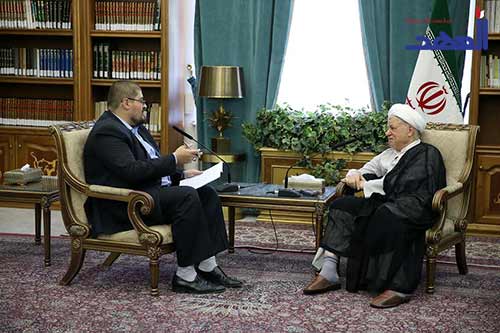
Q) What do you think about the relations between Iran and the Arab world, especially with the Persian Gulf countries?
A) I see it now as bad, with the exception of some states that follow a somewhat moderate approach and are trying to keep up these relations. The relations today more or less resemble the period during of the imposed war. These countries were supporting ‘Saddam' with the exception of Syria, with whom we had good relations, while [Syria] had differences with the other Baath Party in Iraq.
But the remaining states were not as such, the states of the south put all their energies, from military bases, ports, and equipment, in the hands of Saddam, in support of the aggression against Iran. However, we were able to solve our problems, because the head of those states was Saudi Arabia, and I knew that the solution begins with it, and so if we were able to solve the problems with Saudi Arabia, then solutions to problems with the remaining states will be easy, and this is what happened. Of course, King Abdullah back then was the crown prince. He was a rational man, very different to those who hold the reins of power now.
When relations with Saudi Arabia improved, they also improved with other Arab states, and they began to race each other in establishing good relations with Iran.
At that stage, the Hajj ceremonies in those days were suspended [for Iranians]. This is considered something negative for a country in which a large Islamic revolution succeeded, for its citizens not to go and perform the Hajj. So the late Imam Khomeini gathered us together in the last days of the war and told us: it is not right that we do not carry out the Hajj duty that is obligatory just like the daily prayers, and therefore we must move to resolve the issue.
The advice of the Imam [may his soul be sanctified] helped us in resolving this issue, just like other issues that have been resolved in the same manner.
But the situation has changed today, the wealth of Saudi Arabia has increased, and it has joined the other side, there are also extremist groups working to raise differences, but the difference is that these [groups] talk without action. In any case, the situation is not good and it must be resolved.
Q) In your capacity as a senior supporter of the Palestinian cause since the early days of your struggle, along with his eminence the late Imam, and considering that the anniversary of the International Quds Day is approaching, what is your assessment of the future of Palestinian developments?
A) With respect to the future of Palestine, I still think that the presence of "Israel" and its fake government is temporary and there will come a day when this foreign tumor will be expelled from the body of the Palestinian people and country.
How and when? This is what will be determined by circumstances, it is possible that circumstances will come about soon that make Israel convinced that the continuation of its existence is not in its interest, and it may be a long way away, because Israel and its protectors are trying to prolong this period. As "Israel" today forms a multi-purpose base for the West, which benefits them more than they spend on it, and the biggest example of this is that the presence of "Israel" in the region makes the Arabs live in fear, seeking and buying arms from the West itself, and therefore the Arabs become subservient to [the West], and they provide it with enormous amounts of money.
"Israel" will not be able to remain in the region for long, it has a specific end date that will arrive some day. But we regret that Arabs today do not care about their real animosity towards this occupier, rather, Iran has become the number one enemy, it is not the first time they consider Iran an enemy for them, but this phase was followed by a good period, before [us] being [considered] their enemies again. We also regret that they are thinking about official relations [with "Israel"] in many areas, even among some Palestinians there is serious talk about resolving their problems with "Israel".
There are many factors that make all gather around each other, and confer and relay history to younger generations in order to keep the "Palestinian issue" alive in our conscience. I do not know if this thing continues till now. The Arabs have vowed not to grant a permanent citizenship for Palestinians living in their countries, in order for the Palestinian identity not to be lost. Today, I do not know if Arabs are still committed to that pledge.
Q) What do you think is the impact of the late Imam's approach towards the Palestinian cause during the Islamic Revolution, especially since the issue had become forgotten by the majority of Muslims during that time?
A) Yes, the cause was gradually on its way to oblivion, but the Islamic Revolution revived it, and since the first day of the struggle against the Shah, the Imam gathered all scholars together and gifted them a book [The History of Palestine] by the writer Akram Zaiter, which I had personally translated, and the Imam asked them to read it, saying: "The Palestinian issue is a religious and national issue for us, and it should become one of our [main] demands. Then the late Imam declared the International Quds Day, which left a significant impact globally.
Iranian embassies abroad still commemorate the anniversary on an annual basis, where the Palestinian issue is discussed and kept alive in the global conscience. This is very effective for the Palestinian issue.
Q) What is your assessment of the position of the Resistance front today, especially Hizbullah in Lebanon?
A) In fact Hizbullah is considered a very important movement. The seeds of resistance were placed in the time of Imam Mousa al-Sadr under the name of the ‘Movement of the Oppressed', I was then in Beirut when he established the initial structure of this movement, I congratulated him and said that the flame of this path will not be extinguished easily.
Hizbullah has emerged from this movement, and the purest people in this region are its members [fighters], and they have proven in practice their sincerity and heroic resistance in the region, while retaining the same principles and path. The wars that have occurred with "Israel" proved the extent of Hizbullah's power, such that it has became a force that threatens the [future of the] Zionist entity. If Hizbullah was not present in Syria, the situation would have collapsed during the first year. The work of Hizbullah in the battlefield in Syria is extremely valuable, and in other regions which it is also providing help. Hizbullah has an ideological link with Iran, and Hizbullah is considered a role model, and it has become a force to be reckoned with throughout the world, and it was able to defend its self on its own, and preserve its achievements.
Source: Al-Ahed News, Translated and edited by website team
